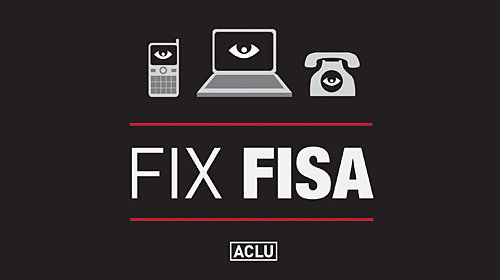Government Reverses Course on Warrantless Wiretapping in Criminal Case, Admits Duty to Notify Defendants


Last week, the government finally took a step toward living up to promises it made in the Supreme Court this past fall. Reversing course in a little-watched criminal case in Florida, the government its obligation to notify defendants when prosecutors intend to use as evidence communications intercepted pursuant to the FISA Amendments Act (FAA), one of the laws authorizing the National Security AgencyÔÇÖs mass surveillance programs. But while the development in Florida is important, the government continues to take extraordinary efforts to conceal its use of the law from both and the . As a result, the likelihood of any court reviewing the FAAÔÇÖs constitutionality in the context of a criminal proceeding remains slim.
Earlier this year, the government defeated the └¤░─├┼┐¬¢▒¢ß╣¹ÔÇÖs challenge to the warrantless wiretapping program in Clapper v. Amnesty by arguing that the plaintiffs lacked ÔÇ£standingÔÇØ because they couldnÔÇÖt show they had been harmed by the surveillance program. In advancing this argument, however, the government took pains to emphasize that other courts would have the chance to test the constitutionality of the controversial law. The government repeatedly assured the Supreme Court that criminal defendants who were prosecuted based on evidence obtained under the FAA would receive notice of that fact, thereby paving the way for judicial review. The Supreme Court took the governmentÔÇÖs argument at face value, stating in its opinion that such notice could provide an opportunity for a future challenge.
The governmentÔÇÖs actions after Clapper have raised many questions about the accuracy of the assurances it made to the Supreme Court. After Senator Dianne Feinstein suggested in congressional testimony that FAA-derived evidence had played a role in the prosecutions of criminal defendants in Florida and Illinois, attorneys for those individuals filed demands for official notice ÔÇö of the kind the government had promised it would provide. But prosecutors initially denied they had any duty at all to provide that notice. Adam Liptak helpfully laid out the apparent inconsistencies between the governmentÔÇÖs words and actions in a New York Times ; an earlier └¤░─├┼┐¬¢▒¢ß╣¹ blog post made a similar point, using additional examples drawn from the governmentÔÇÖs defense of the NSAÔÇÖs PRISM program.
On the heels of this scrutiny, the government made an about-face last Tuesday, when it finally acknowledged its duty to provide notice of FAA-derived information, at least under certain conditions. In United States v. Qazi, the Florida case, prosecutors the court that while they donÔÇÖt intend to use evidence derived from FAA surveillance of the defendantsÔÇÖ communications in this particular case, they would provide notice in cases where the government plans to rely on such material.
This concession is important, but it contains several significant qualifiers that highlight a larger problem. Because only the government has the power to prosecute, it ultimately controls which defendants ÔÇö if any ÔÇö have the opportunity to challenge the FAA. Thus, the government can continue to avoid court review of the statute by choosing not to use FAA-derived evidence at trial, by offering impossible-to-turn-down plea bargains or, in the extreme case, by abandoning prosecutions that risk an adverse ruling. In our legal system, judicial review should not occur only at the grace of the executive branch.
An even more troubling possibility exists. Reuters yesterday that law enforcement agents may be actively seeking to conceal the source of evidence derived from NSA surveillance, in order to avoid court challenges:
The undated documents show that federal agents are trained to ÔÇ£recreateÔÇØ the investigative trail to effectively cover up where the information originated, a practice that some experts say violates a defendantÔÇÖs Constitutional right to a fair trial. If defendants donÔÇÖt know how an investigation began, they cannot know to ask to review potential sources of exculpatory evidenceÔÇöinformation that could reveal entrapment, mistakes or biased witnesses.
Another indicates that the NSA may have referred as many as 30 non-terrorism criminal cases to the Department of Justice based on information it obtained through electronic surveillance. Yet, to date, not a single defendant has received notice of prosecutorsÔÇÖ intent to use FAA-derived evidence.
If law enforcement agencies are manufacturing an ÔÇ£independentÔÇØ basis for their criminal investigations in order to conceal their reliance on NSA surveillance, that practice violates both the letter and the spirit of the law. Criminal defendants have the right to know when the governmentÔÇÖs evidence is derived from the NSAÔÇÖs interception of their communications, so that they can test the lawfulness of that surveillance. Judicial review of the governmentÔÇÖs warrantless wiretapping program should be more than a hypothetical promise to the Supreme Court.
Learn more about FISA: Sign up for breaking news alerts, , and .

